No Middleman
The Light of God surrounds us.
The Love of God enfolds us.
The Power of God protects us.
The Presence of God watches over us.
Wherever we are, God Is, and all is well!
– James Dillet Freeman (1912-2003), from “Prayer for Protection” (1941)
 Jesus wanted to abolish religions altogether and teach us to relate to God on our own. The Gospel evidence is plain to see, but very few Biblical scholars will consider its amazing implications. We tend to see religions as such a core human institution that they feel essential to us now. Without religions, how can there be a God? And if there still is a God even without religions, how can we find and know that God? I was a teenager when I first put together the evidence that Jesus came to abolish religions, and my own reluctance to believe it kept me silent until I hit old age. It was like the bits of evidence that Jesus may have been homosexual: they are there in the Gospels, and personally I tend to believe it was true and it doesn’t matter; but it disrupts the narrative for some people. And the last thing Christianity needs right now, at a time of so much stress and falling-away, is any controversial new ideas!
Jesus wanted to abolish religions altogether and teach us to relate to God on our own. The Gospel evidence is plain to see, but very few Biblical scholars will consider its amazing implications. We tend to see religions as such a core human institution that they feel essential to us now. Without religions, how can there be a God? And if there still is a God even without religions, how can we find and know that God? I was a teenager when I first put together the evidence that Jesus came to abolish religions, and my own reluctance to believe it kept me silent until I hit old age. It was like the bits of evidence that Jesus may have been homosexual: they are there in the Gospels, and personally I tend to believe it was true and it doesn’t matter; but it disrupts the narrative for some people. And the last thing Christianity needs right now, at a time of so much stress and falling-away, is any controversial new ideas!
But the evidence that Jesus came to end religions is abundant in the Gospels and plain to see. Second only to His teachings about love, forgiveness, and bringing the kingdom of God on earth, it is what He mostly talked about. In fact, it was probably precisely because He was teaching us how we could bring the kingdom of God on earth that he was so frankly hostile to religions. Our fear-based relationships with human-made gods make it a great deal harder for us to ever come to know and love the genuine Godhead. So, He said it. He kept on saying it. And it is past time for us to consider the possibility that He actually may have meant what He said!
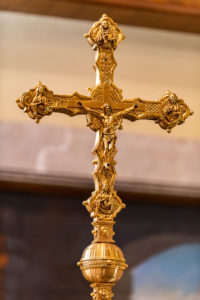 We have today so few of the precious words that Jesus spoke over more than three years of public teaching. But even at that, we can see that the Lord’s manner when something was important to Him was to preach about it repeatedly and from more than one perspective. He treated love that way. And forgiveness. And He mentioned the kingdom of God or the kingdom of heaven more than eighty times over all four Gospels! His effort to teach against religions was a harder task, since for Him to speak directly against the prevailing religion would have been a capital crime. So He had to speak around the edges, and He did that very cleverly. Let’s consider what He actually said.
We have today so few of the precious words that Jesus spoke over more than three years of public teaching. But even at that, we can see that the Lord’s manner when something was important to Him was to preach about it repeatedly and from more than one perspective. He treated love that way. And forgiveness. And He mentioned the kingdom of God or the kingdom of heaven more than eighty times over all four Gospels! His effort to teach against religions was a harder task, since for Him to speak directly against the prevailing religion would have been a capital crime. So He had to speak around the edges, and He did that very cleverly. Let’s consider what He actually said.
He Spoke Against Religious Traditions
Every religion is built on traditions, and Christianity is no exception. The religion is centered on the notion that Jesus died to save us from God’s judgment for our sins, and in observance of that fact every Christian denomination participates in the ritual of communion at least occasionally. For Catholics, it happens every week. But what might Jesus say about that?
“Neglecting the commandment of God, you hold to the tradition of men… You are experts at setting aside the commandment of God in order to keep your tradition” (MK 7:8-9).
“Why do you transgress the commandment of God for the sake of your tradition?… You hypocrites! Rightly did Isaiah prophesy of you: ‘This people honors me with their lips, but their hearts are far away from me. But in vain do they worship me, teaching as doctrines the precepts of men’” (MT 15:3-9).
Ouch. And Jesus was quoting the great prophet Isaiah, who had spoken similar words to the Jews a full eight hundred years before. Isaiah, too, had told us that God is disgusted and not charmed by all our human-made religious practices!
He Despised Religious Authorities and Clergymen
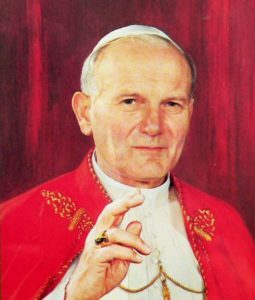 He was so firm about this, and so consistent, that it is hard to resist concluding that it was the very idea of clergymen that he really found to be so offensive! But, judge for yourself.
He was so firm about this, and so consistent, that it is hard to resist concluding that it was the very idea of clergymen that he really found to be so offensive! But, judge for yourself.
“Beware of the scribes who like to walk around in long robes, and like respectful greetings in the market places, and chief seats in the synagogues and places of honor at banquets, who devour widows’ houses, and for appearance’s sake offer long prayers; these will receive greater condemnation” (MK 12:38-40).
“Woe to you religious lawyers! For you have taken away the key of knowledge; you yourselves did not enter, and you hindered those who were entering” (LK 11:52).
“But woe to you, scribes and Pharisees, hypocrites, because you shut off the kingdom of heaven from people; for you do not enter in yourselves, nor do you allow those who are entering to go in” (MT 23:13).
And who can forget the moment when Jesus altogether lost it? “Jesus entered the temple and began to drive out those who were selling, saying to them, “It is written, ‘And My house shall be a house of prayer,’ but you have made it a robbers’ den.” And He was teaching daily in the temple; but the chief priests and the scribes and the leading men among the people were trying to destroy Him, and they could not find anything that they might do, for all the people were hanging on to every word He said” (LK 19:45-48).
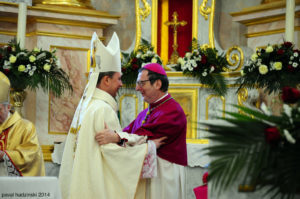 At last, near the end of His life on earth, the Lord’s distress at the man-made religious details that He had been fighting all His public life had come to a head for Him. And the clergy for whom He had been an increasing bane were fed up enough that they were thinking about how to be rid of Him. We should note, too, that the Lord’s rant against the money-changers is another echo of words from God first spoken by an Old Testament prophet (see Jer 7:11-12). Which thought makes me more deeply realize that Jesus is frankly telling us now that God has been fighting to free us from fear-based human-made religions for what is now going on three thousand years! Oh, dear God. The genuine Godhead’s patience with us reflects a love that truly is beyond all human understanding!
At last, near the end of His life on earth, the Lord’s distress at the man-made religious details that He had been fighting all His public life had come to a head for Him. And the clergy for whom He had been an increasing bane were fed up enough that they were thinking about how to be rid of Him. We should note, too, that the Lord’s rant against the money-changers is another echo of words from God first spoken by an Old Testament prophet (see Jer 7:11-12). Which thought makes me more deeply realize that Jesus is frankly telling us now that God has been fighting to free us from fear-based human-made religions for what is now going on three thousand years! Oh, dear God. The genuine Godhead’s patience with us reflects a love that truly is beyond all human understanding!
He Told us Not to Package His Teachings with Judaism
And He likely meant to include all religions. It is clear from the words He spoke that He was trying to keep the genuine Word of God entirely free from the old human-made ideas that are the basis of all religions.
“But no one puts a patch of unshrunk cloth on an old garment; for the patch pulls away from the garment, and a worse tear results. Nor do people put new wine into old wineskins; otherwise the wineskins burst, and the wine pours out and the wineskins are ruined; but they put new wine into fresh wineskins, and both are preserved” (MT 9:16-17).
“Therefore every scribe who has become a disciple of the kingdom of heaven is like a head of a household, who brings out of his treasure things new and old” (MT 13:52).
Christians have mostly assumed these words were a call to create for Him a new religion, but when they are put in context with all His vigorously anti-religious teachings it is clear that was the last thing He wanted!
He Gave Us the Basics of a Post-Religious Relationship with God
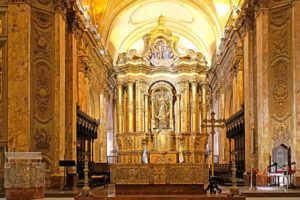 He taught us how to recognize the difference between human-made false teachings and the genuine Word of God. He encouraged us to avoid praying in religious assemblies, and instead to seek privacy and pray to God on our own. He also suggested that the purpose of these changes was to establish a relationship with the genuine God that was based not in fear, but in love and trust.
He taught us how to recognize the difference between human-made false teachings and the genuine Word of God. He encouraged us to avoid praying in religious assemblies, and instead to seek privacy and pray to God on our own. He also suggested that the purpose of these changes was to establish a relationship with the genuine God that was based not in fear, but in love and trust.
“Beware of the false prophets, who come to you in sheep’s clothing, but inwardly are ravenous wolves. You will know them by their fruits. Grapes are not gathered from thorn bushes nor figs from thistles, are they? So every good tree bears good fruit, but the bad tree bears bad fruit… So then, you will know them by their fruits” (MT 7:15-20).
“When you pray, you are not to be like the hypocrites; for they love to stand and pray in the synagogues and on the street corners so that they may be seen by men. Truly I say to you, they have their reward in full. But you, when you pray, go into your inner room, close your door and pray to your Father who is in secret, and your Father who sees what is done in secret will reward you” (MT 6:5-6).
“Consider the lilies, how they grow: they neither toil nor spin; but I tell you, not even Solomon in all his glory clothed himself like one of these. But if God so clothes the grass in the field, which is alive today and tomorrow is thrown into the furnace, how much more will He clothe you? … And do not seek what you will eat and what you will drink, and do not keep worrying. For all these things the nations of the world eagerly seek; but your Father knows that you need these things. But seek His kingdom, and these things will be added to you. Do not be afraid, little flock, for your Father has chosen gladly to give you the kingdom” (LK 12:27-32).
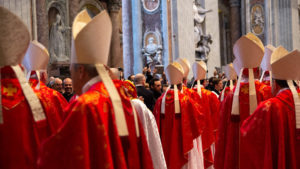 God has chosen gladly to give us the kingdom! But Jesus makes it plain to us that unless we will give up the crutch of our old human-made religions, we never will be free enough from fear and ancient superstitions to have the ultimate joy of coming at last to know and love and trust the genuine God.
God has chosen gladly to give us the kingdom! But Jesus makes it plain to us that unless we will give up the crutch of our old human-made religions, we never will be free enough from fear and ancient superstitions to have the ultimate joy of coming at last to know and love and trust the genuine God.
The Mind of God guides us.
The Life of God flows through us.
The Power of God abides in us.
The Joy of God uplifts us.
The Strength of God renews us.
The Beauty of God inspires us.
Wherever we are, God Is, and all is well!
– James Dillet Freeman (1912-2003), from “Prayer for Protection” (1941)
The post No Middleman appeared first on Roberta Grimes.



